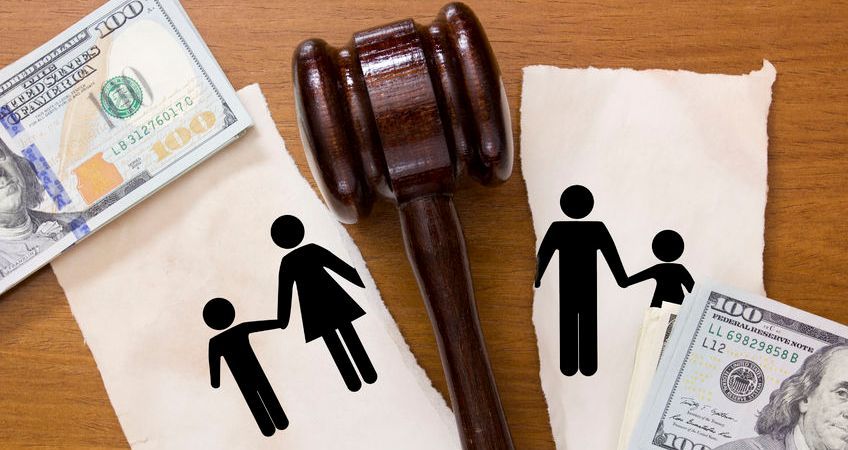In this article, we’re looking at prenuptial agreements and the impact that they have on property division following a divorce.
An increasing number of couples in the UK choose to hire a prenuptial solicitor to help them draft a prenuptial agreement ahead of their marriage. A move which, may not appear to be the most romantic gesture but can prevent a lot of stress should the marriage end in divorce.
In this article, we’ll be looking at what a prenuptial agreement is and the impact that it has on property division should a couple decide to divorce.
What is a Prenuptial Agreement?

source: pinterest.com
A prenuptial agreement is a legally binding contract which is made by two people before they get married. The purpose of this document is to clearly lay out the terms of what will happen should the marriage end in divorce, including who gets what in terms of property and assets.
The contract may also state the terms by which property and assets are divided. For example, it may say that one spouse will be awarded an asset or a certain amount of money if the marriage ends within a year – but a larger asset or amount of money will be given if the marriage lasts five years or more.
In the past, prenuptial agreements tended only to be drawn up by extremely wealthy people, who wished to protect their wealth and prevent having to pay out huge alimony payments. However, these days, such agreements have become more commonplace as a way of simplifying things should the marriage fail.
How Does a Prenup Affect Property Division?

source: pinterest.com
If a prenuptial agreement is executed correctly, it serves as an instruction for how assets are divided. For example, the contract may state that each party will be granted the amount of money that they brought into the marriage, with the balance to be divided. However, if one partner was wealthier prior to the marriage, they may choose to allocate an amount of cash to their partner as settlement of the divorce.
There are a few exceptions that can affect a prenuptial agreement, including:
Shared homes
If prior to or during the marriage, the couple bought a house (either outright or with a mortgage) and the house is in both of their names, this cannot be claimed solely by one spouse. Instead, this property will be divided according to UK law. Either the house will be sold and the proceeds divided or one partner will buy the other out.
Voided agreement

source: pinterest.com
A prenuptial agreement may be voided in a court of law under some circumstances, including:
- Disclosure – When a prenup is created, it requires both parties to make full disclosure of all of their assets. If one or both parties fail to disclose one or more of their assets, this is considered fraudulent, and the agreement will be considered void.
- Representation – If an agreement was drawn up without being legally filed through a proper representative, it may not be accepted as valid by a court of law.
- Unreasonable provisions – A prenuptial agreement should generally represent the best interests of both parties, therefore, should a contract contain provisions which a court finds unreasonable or ridiculous, it can choose to override it. An example of this might be an agreement which states that a wife will be granted custody of any children but will not be paid any child support by her spouse in the event of a divorce.
- Voluntary participation – For a prenuptial agreement to be valid, it must be created and signed voluntarily by both parties. If one party is able to prove that they were coerced into signing the agreement, this may result in the document being discounted in court.
Should a Couple Consider a Prenuptial Agreement?

source: pinterest.com
Choosing whether or not to use a prenup is, of course, down to the individual. Generally speaking, these contacts can be a good way of avoiding misunderstandings and lengthy court battles should the marriage not work out.
When choosing to go with a prenuptial agreement, you should always hire the services of a solicitor to make sure that the agreement is legally binding.
While some couples are put off the idea of a prenuptial agreement due to the fact that it takes the romance out of their union, many others feel that this is simply a sensible way of making sure that they don’t end up unfairly out of pocket if the marriage ends with a divorce.
If you do decide to go ahead, a good family solicitor will be able to help you to make sure that your agreement is rock solid.
Please be advised that this article is for general informational purposes only, and should not be used as a substitute for advice from a trained legal professional. Be sure to consult a lawyer/solicitor if you’re seeking advice on prenuptial agreements. We are not liable for risks or issues associated with using or acting upon the information on this site.





